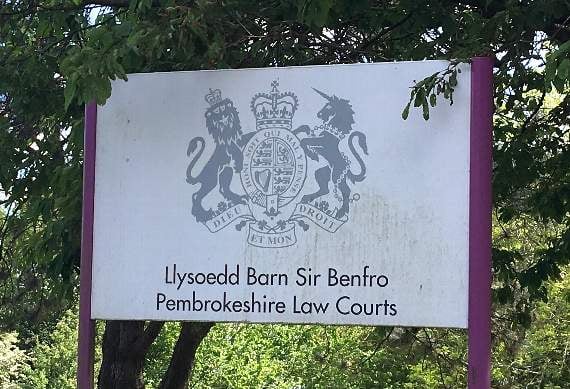A man from St. Clears has been cleared of a speeding offence following a trial, after magistrates dismissed the charge due to a lack of evidence.
Forty-year-old Paul Whisby of Clos Griffith Jones, was charged with exceeding 30 mph on a restricted road.
The defendant was also charged with failing to give information relating to the identification of the driver when required.
During a trial held on Monday at Haverfordwest Magistrates Court, the bench heard the defendant was alleged to have done 38 mph in a 30-mph zone in Templeton on April 4.
Prosecutor, Sian Vaughan told the court that at 12 noon on the day in question, the vehicle passed the speed camera that was set up, where the figure of 38 mph was confirmed.
She said the defendant was given a twenty-eight day notice to respond to the charge, but no reply was given.
The court then heard from prosecution witness Mr. Thomas who worked for the company who supplies the speed camera vans, who identified Mr. Whisby as the driver.
He mentioned that the defendant had been sent a final written warning after three weeks, but no reply was given.
Mr. Thomas was then asked by the magistrates about how mail is despatched.
He replied by saying the mail doesn’t come to them but it goes to a post office where it is sealed. A representative then checks seal and the addresses.
Mr. Whisby who was not represented, said he was ‘shocked’ when he received the letter indicating that action was going to be taken against him in court.
He said until he had received that letter from court he ‘didn’t know anything’ about the charge.
Mr. Whisby added he had no problems with receiving mail at his property.
In response, Ms. Vaughan argued that it was a coincidence that the defendant had not received any mail relating to the case, and suggested that he had been ignoring the letters.
Mr. Whisby, replied by saying he had not made further enquires as to who was driving at the time, but he reasserted that he was not the driver of the vehicle.
He then went on to say that if he had received the first letter he would have enquired.
Ms. Vaughan said it was down to the defendant as to why he hadn’t received the letters to start off with.
However, the magistrates disagreed stating the mail was damaged and the address where the letters were sent to originally was wrong.
They also concluded that the case could not be proved beyond reasonable doubt and found the defendant not guilty.




